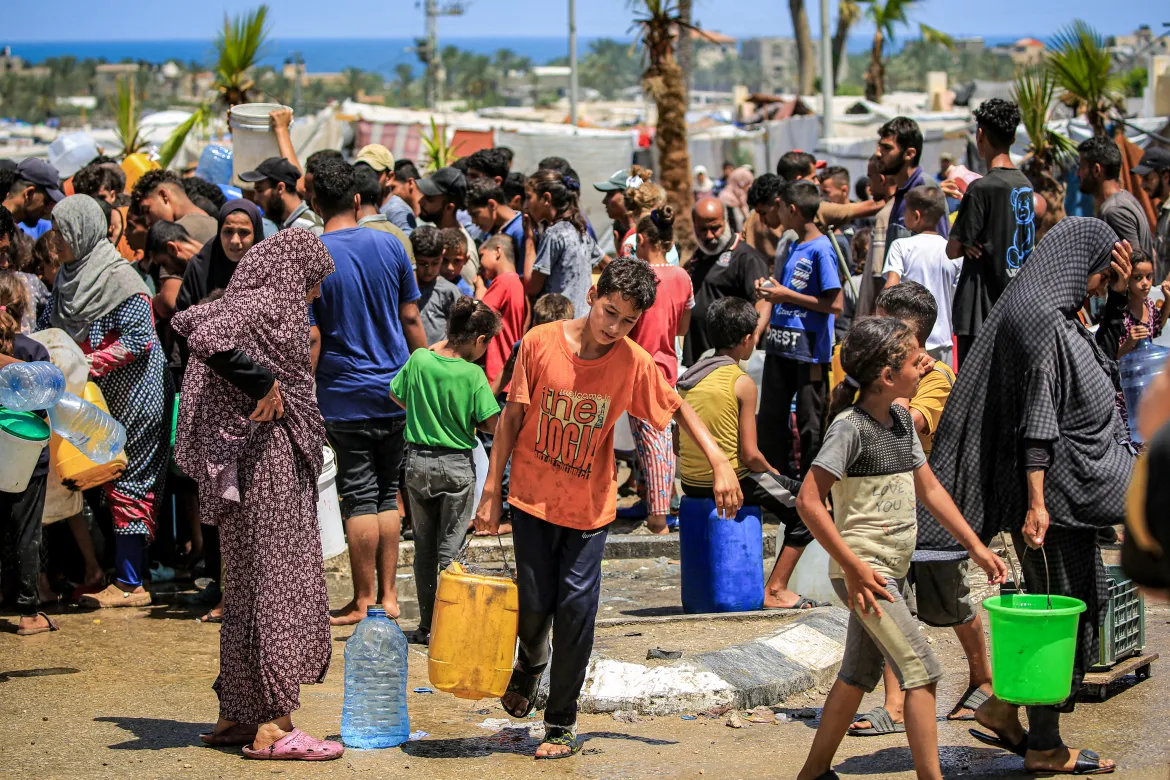This week, the United States will assess the situation in Israel as it tries to calm the humanitarian needs in Gaza following reports that an impending food crisis was headed for that region. Conditions seem to worsen further as military operations against Hamas continue. Meanwhile, Washington is likely to review its position on assistance as the UN warns of possible famine in northern Gaza.
Imminent Famine Threatens Northern Gaza
Food security experts around the world rang alarm bells over an “imminent famine” in parts of northern Gaza, with military blockades and reduced humanitarian access having further worsened shortages in the area. The head of the United Nations Palestinian relief agency UNRWA, Philippe Lazzarini, condemned Israel for “weaponizing hunger” amid the ongoing conflict. The stark warning has intensified national organizations’ need for immediate access to food and medical aid to prevent large-scale starvation.
As part of this, Israel’s Coordinator of Government Activities in the Territories (COGAT) published a report yesterday detailing its humanitarian work since June. According to COGAT, recent steps aim to prepare the Gaza population for the hard winter ahead, including handing out supplies and coordinating shipments. Israel’s U.N. Ambassador, Danon, recently addressed the United Nations Security Council that more than a million tons of supplies entered Gaza last year to dispel allegations of failing humanitarian support. Danon added that Hamas frequently steals this kind of resource, an accusation Hamas denied.
Gazans Displaced: Never Seen Severity in Store
The crisis has been so devastating that it has deprived many Gazans of all safe refuge in the face of a wave of evacuations. Displaced families say they survive in temporary tents, having to move from one place to another as attacks come in waves. “Conditions now are worse than those during the 1948 Nakba, or Catastrophe, when hundreds of thousands of Palestinians were displaced,” says Mohamed Abou Qaraa, a displaced resident.
“Today we have neither safety nor a home,” Abou Qaraa lamented, emphasizing the trauma for Gaza’s population caught up in the unending cycle of conflict and displacement.
Washington’s Impending Decision
As the humanitarian situation worsens, diplomatic pressure mounts on Washington to take action. This week’s decision of whether Israel has made enough progress could determine how Washington decides on diplomatic and humanitarian burdens in the region. One waits for how the US would strive to enforce the easy flow of aid, pushing Israel and Hamas alike to nurture and safeguard the vulnerable population of Gaza.















